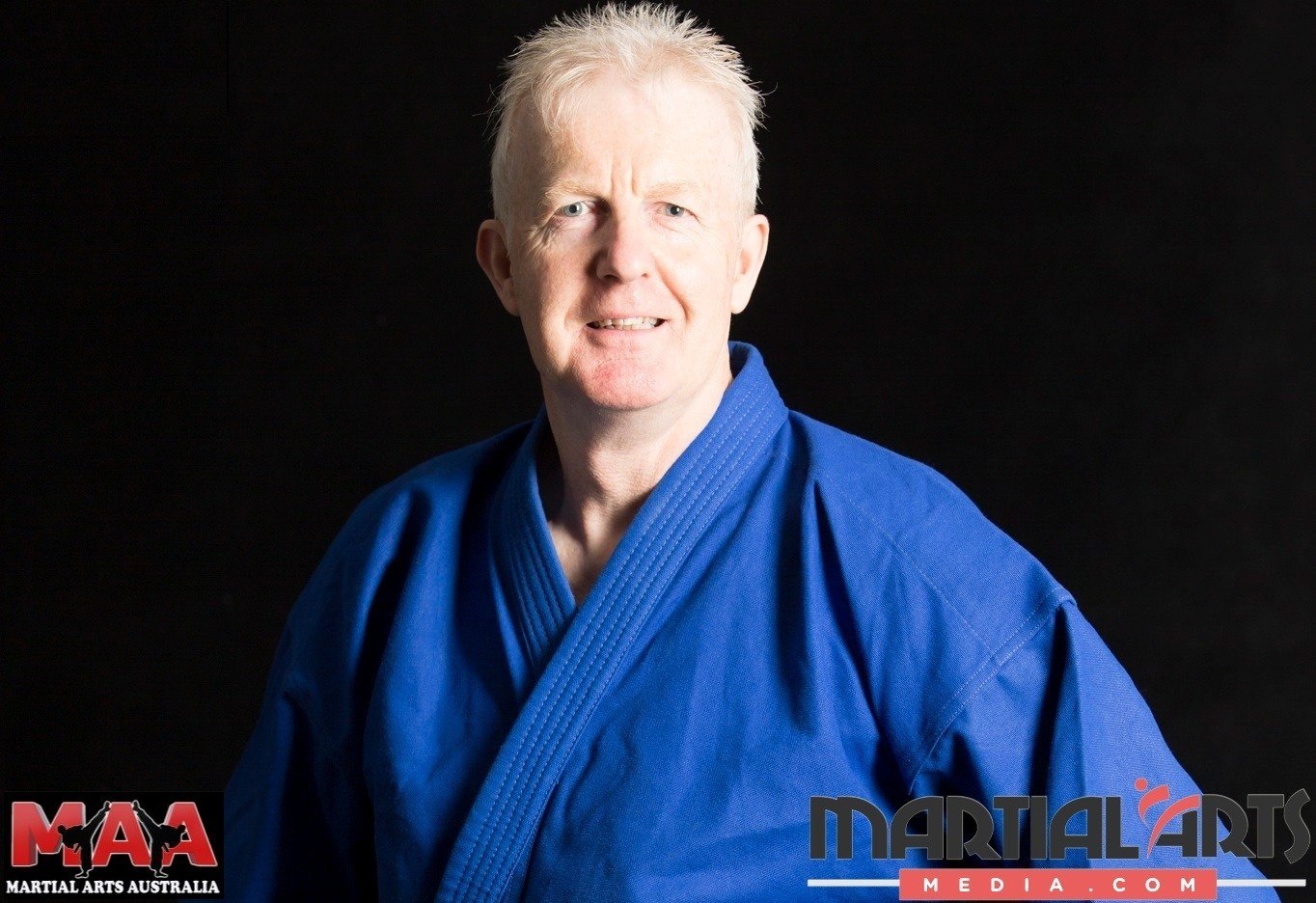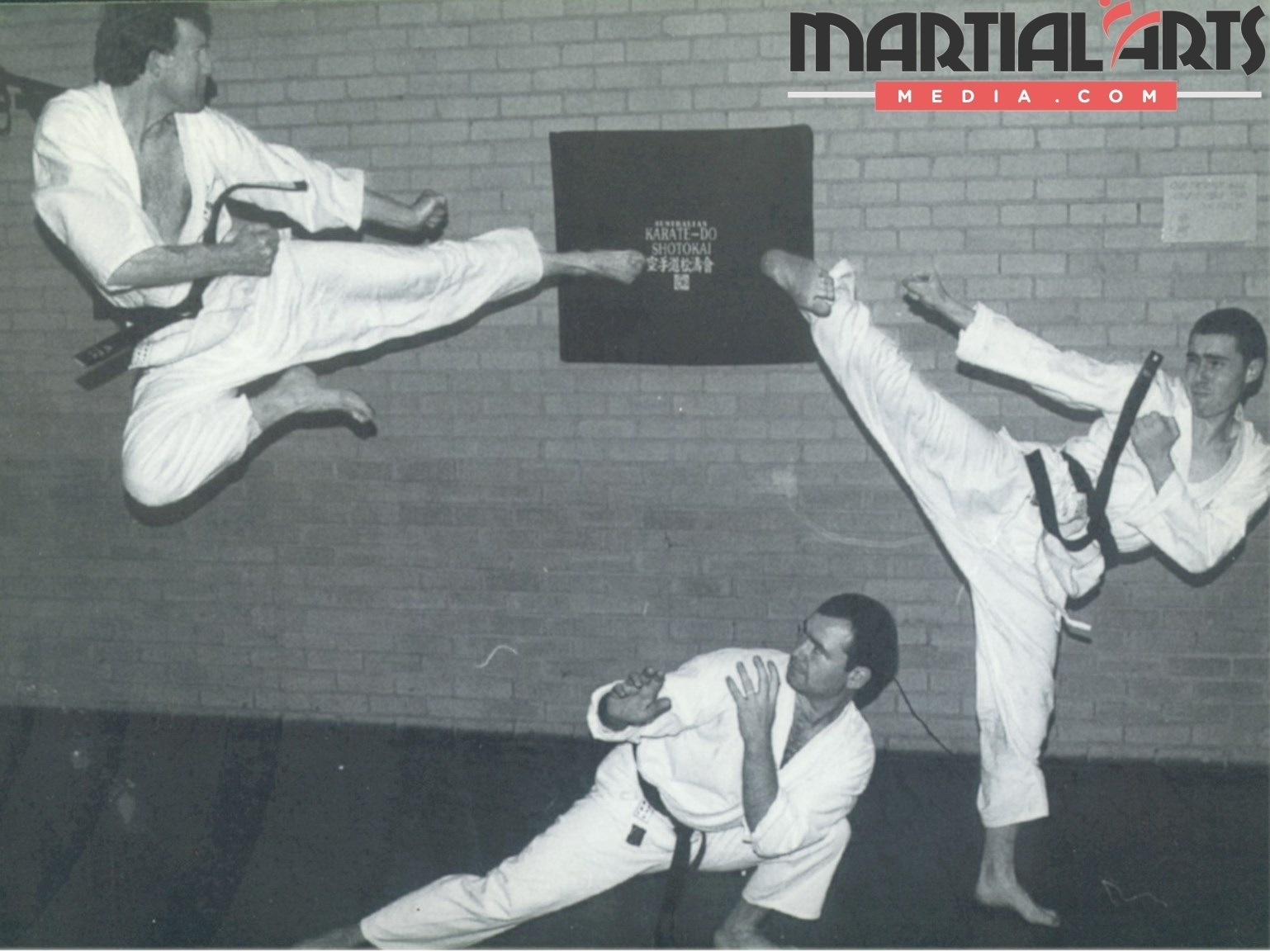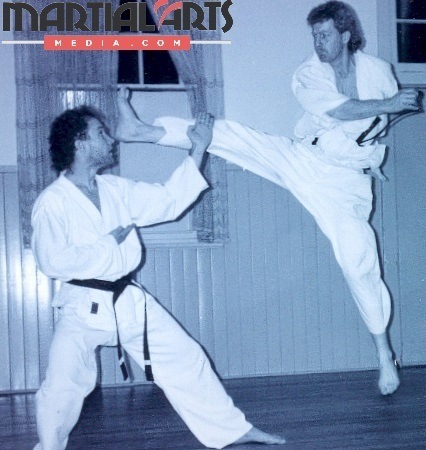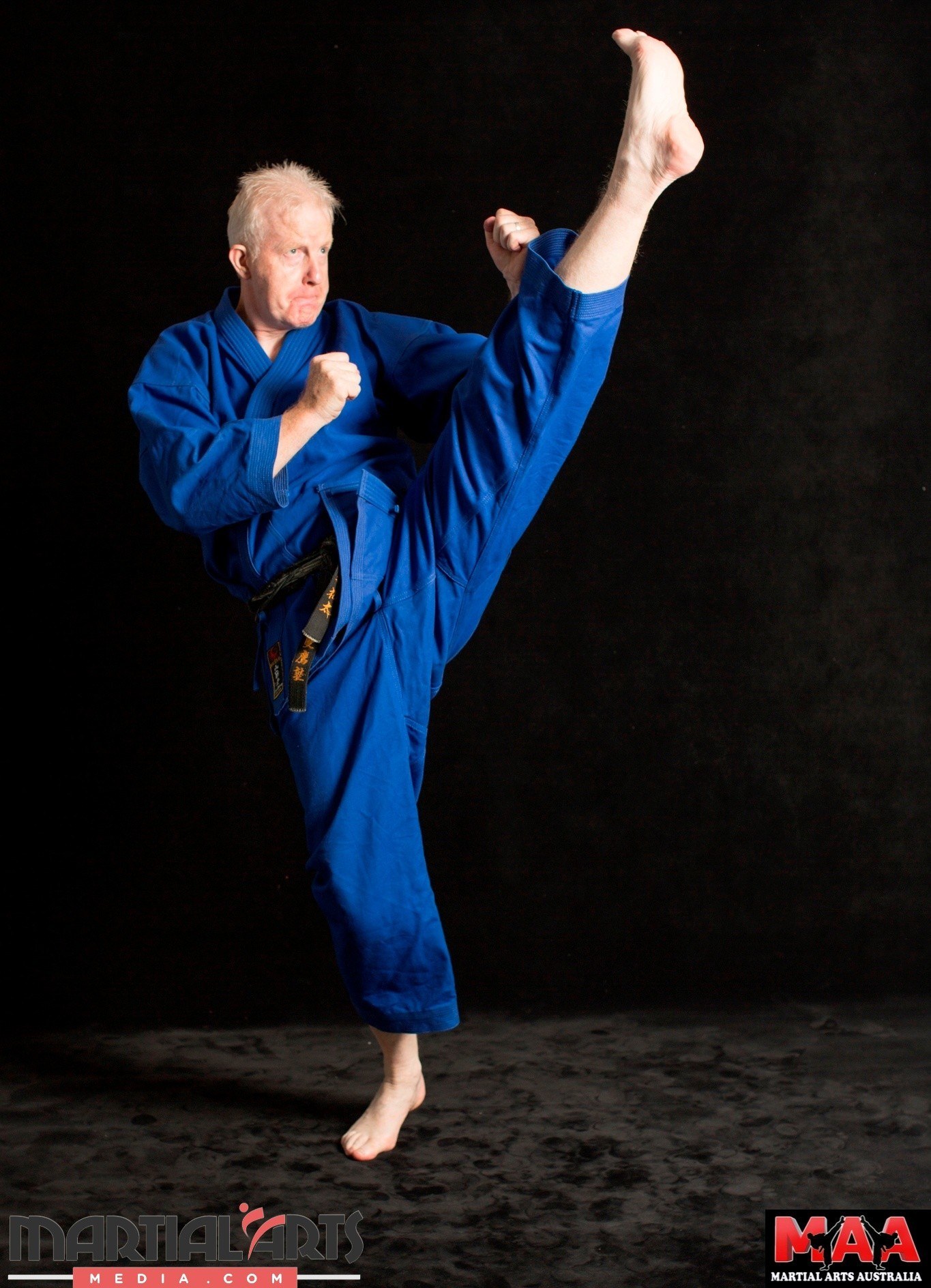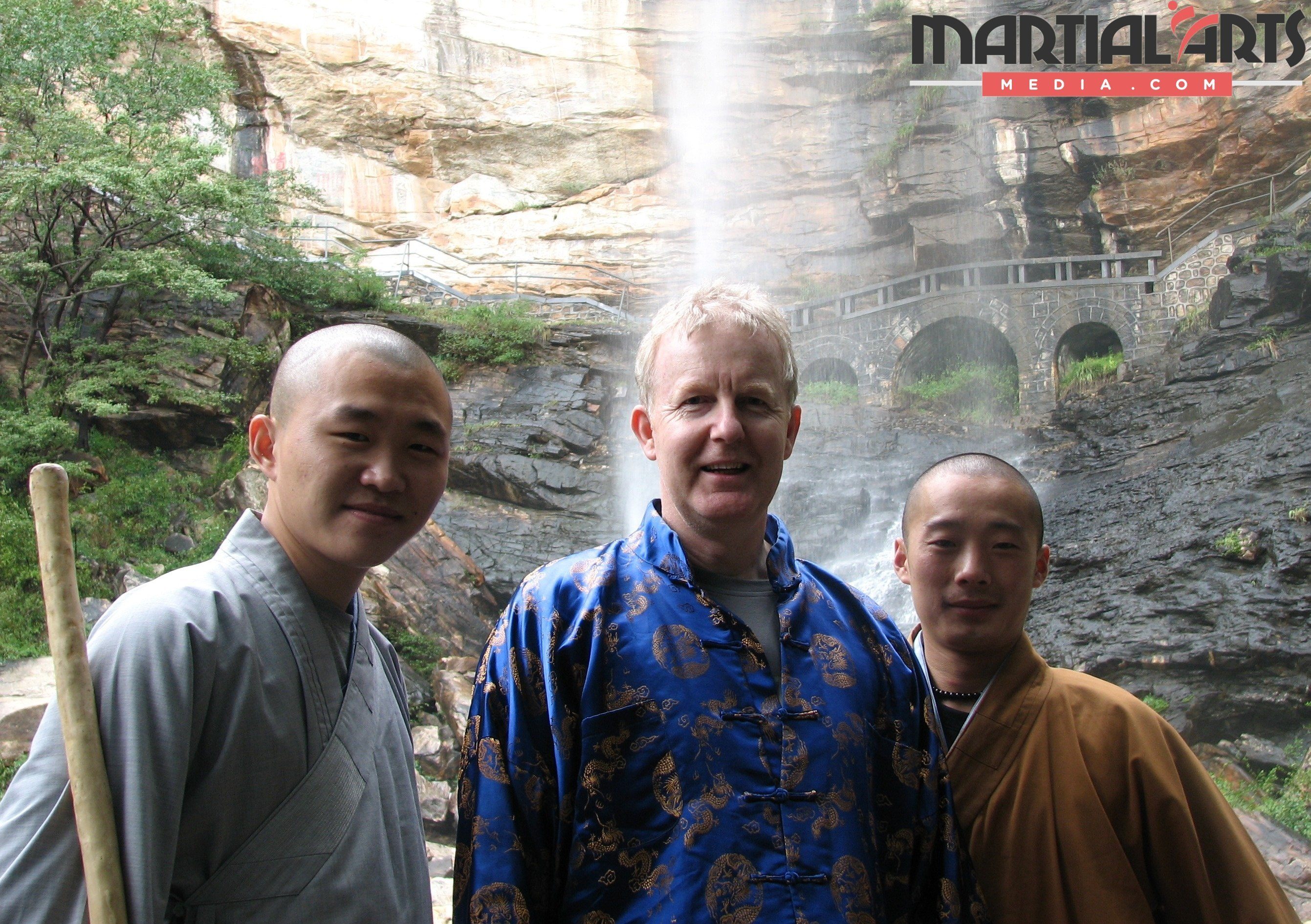Ross Cameron shares how to run martial arts events and details about their exciting grappling tournament, Lockdown.

IN THIS EPISODE, YOU WILL LEARN:
- How to manage remote employees and martial arts school effectively
- The importance of having established business systems and processes across your martial arts schools
- The prerequisites to running a successful martial arts event
- When and why you need an event insurance
- What makes Lockdown a big attraction compared to other grappling tournaments
- And more
*Need help growing your martial arts school? Learn More Here.
If you're putting on an event, at the end of the day, you don’t want to be turning around and saying, sorry about it, but I can't afford to pay you. You don't want to be standing around the official, saying, sorry, we can't afford to pay you.
Hi, this is George Fourie and welcome to another Martial Arts Media business podcast, episode number 37. Today I speak to another gentleman, with multiple hats, which is Ross Cameron. And Ross, a former engineer, I’d say a serial martial arts entrepreneur, who is the owner of Aftershock, Fightcross gyms, multiple Fightcross gyms across Australia and an exciting new grappling tournament event called Lockdown. And we talk a bit about that, we also go into detail about hosting events, how you can host your own events, and everything that goes with it and doesn't sound like an easy process, but obviously doable. So lots to chat about, lots to discover in this episode.
So if you need help with your martial arts marketing, the digital side of things: Facebook, Google, email, converting, having a website that converts: we just created a Facebook group, which is a support group for a lot of the information that we are putting out, so I've been doing a series of online web classes, which you can find more about at martialartsmedia.com/workshop and we pretty much over-deliver in giving away the strategies and methods that we use for top martial arts schools around the country and America and so forth.
So the Facebook group is sort of a support group for that and we share bits of information and I'm starting to upload snippets of videos, things that really help you build your business. So if you want in, it’s a closed group, all that you've got to do is go to martialartsmedia.group, so martialartsmedia.group and request to join. And if you're nice, I’ll let you in – which, I'm sure you're nice. I've had to remove a few people that want to spam this service, that service, and funny stuff so yeah, I'm very on to keeping it clean and keeping it of value and not being one of those groups where people harass you and spam you and just use it for the purpose of marketing. I go with value first, marketing if you need it.
So that's what we're up to. I would like to see you in the group, that would be awesome, log in, say hi, introduce yourself. It would be great to see you and connect with you there. For this episode, the show notes will be on martialartsmedia.com/37, the number 37. And that's it for now – enjoy the episode, lots of great value to share. Please welcome to the show, Ross Cameron.
GEORGE: Good day everyone. Today I'm with Ross Cameron, all the way from Brisbane, how are you, Ross?
ROSS: Excellent. Thanks for having me on George!
GEORGE: Awesome, I look forward to chatting with you about a few things that… how I came across Ross initially was speaking to Stuart Grant from Westside MMA and he was telling me about the Lockdown events, which they were having at their location. So we're going to be talking about Lockdown and we're also going to be talking about events in general and Ross is a man with multiple hats, so this is going to be an exciting conversation. Welcome, Ross!
ROSS: Thanks. We've got lots of events that I'm involved with, I'm the promoter for Aftershock MMA, I'm the promoter for Lockdown, especially the grappling series. I run a fight night with boxing and kickboxing, and then I'm involved in Mixed Martial Arts Australasia, which is a sanctioning body as well so…
GEORGE: All right, cool, so lots of hats. Let’s take all the hats off and take a step back: how did you get into the martial arts game, how did this all evolve to where it is now?
ROSS: I started off doing judo when I was four, fought internationally back in the 80's when Karate Kid first came out, so I've been around the game for a long time. I've got traditional schools and a lot of traditional background and MMA is just where the sports hit it and where my passion's sort of been. I've been a ground fighter in the strike and fight and I just thought, it puts it all together, so…

GEORGE: You're originally from Auckland, did this start… I guess the business side of martial arts, did that side start in New Zealand, moving across Australia, or…?
ROSS: I started in Brisbane because I was over here as a student under Grandmaster Young Ku Yun for about five years. Then I went back to New Zealand and opened some martial arts schools over there, then I came back to Brisbane and then started off in my garage with training my daughter and suddenly I had too many people and had to take it out of the garage, so I started a school. And I grew and grew and grew, so now I've got four schools around Australia and I keep promoting the events to back up what we do in the gym.
GEORGE: Ok, cool. So that's Fightcross, correct?
ROSS: Yes, that's Fightcross, yep.
GEORGE: All right, cool. And you said around Australia, so you're not just in Brisbane?
ROSS: No, we have one in Perth, and three in Brisbane.
GEORGE: So a quick question on that: how do you manage a location that's not in close reach, that's pretty much right across, as far from the country as you can be?
ROSS: A lot of it is, you've got to trust the people that you put in the place, you've got to spend time training them and making sure they have all their systems in place and do it properly and then you have to have your checks and balances in place, so you've got to be able to drill down into their systems and see what they're doing. It’s hard work, everyone thinks it’s easy though, to open another center, but it never is.
GEORGE: Ok. So you guys are very tight on the following the exact same structure and same systems in all locations?
ROSS: Yeah, yeah. I’m an engineer by background; when an engineer, everything has to be systematized.
GEORGE: So there’s Fightcross and then it started the events, I guess, afterward. How did that all get started for you initially?
ROSS: All right: I was looking for events for my fighters that were the first step up to a fight to jump in and I couldn't find anything that sort of fitted what I wanted my guys doing. They could either do BJJ, or they could do kickboxing, or they were going to pro-MMA fights, there was no amateur MMA really around the scene at the time. So I started Aftershock as an amateur MMA, what's now considered C class rules, so: padded, no hit strikes on the ground, and limited striking standing up, so no knees to the face, but knees to the body, no elbows.
So it gets them a good start, they can get a feel for what's the sport like before they actually jump in and get an A class and get elbowed in the face – just stepping stones. And that's another reason we started our Lockdown events: we needed another stepping stone to develop the grappling and wrestling side of the sport. We don't have collegiate wrestling in Australia, so we're sort of behind the 8 ball, trying to catch up with the Americans, the Turkish guys, Russians and suddenly, we're struggling a bit.
GEORGE: So just for everyone listening, could you give a breakdown of what is a Lockdown event exactly?
ROSS: A Lockdown is a double elimination submission grappling comp, judged on dominance and submission. You're not scoring points; you're there to submit and finish the person. It's run on a five-minute round and if there's no winner in that five-minute round, they'll do a three-minute round and we're looking for a submission. And the way it works is basically, if you lose, you get put down in the loser's bracket and then you work your way back up into the draw, so you get at least two rolls, compared to the BJJ comps where you're getting one roll or round robin where you are having to roll everybody and carry the injuries.
GEORGE: So there's no striking?
ROSS: It’s done in a cage, so you get to practice your cage wrestling, you get to work cage work, your cage take downs, pressure, cage control – very, very MMA orientated, so we're allowed double leg takedowns to the slams – as long as you're not slamming on the back of the head naturally.
GEORGE: All right. So who has this really been beneficial for as a… I guess, let’s start as a student: would it be for someone who's transitioning to MMA, or would it be for like a BJJ student?
ROSS: We get a huge mix of guys that come in. We get guys that are pure BJJ guys, we get guys that are wrestlers, we get guys that are MMA, Japanese jiu-jitsu guys jump in there as well. Because the rules are not just ground or not just stand-up, we get a huge mix. We get a judo, we get Olympic judo guys in there as well, so it’s a great mix for the students to get in there and actually test their skills. We run different divisions, so we have MMA weight divisions, but we also have beginners, intermediate and advanced.
GEORGE: This has attracted a different crowd of people, so if you host an event, how would it be different to a straight up BJJ tournament, or judo, or so forth?
ROSS: Again, it’s the mix. If you're a classical BJJ guy – and I go to BJJ comps and watch it all the time, and the guys are pulling guard and all the rest of it. And suddenly, they're up against a guy who's a judo guy, who's going to throw them. They start to pull guard and mixing up their throw and they're losing position, so the mix is very interesting. Then you get, say, a BJJ guy up against a wrestler. The wrestler's going to have a dominant body position on top, BJJ guy is going to want to play the bottom game and suddenly you're getting another dynamic in it. It’s really interesting to watch how they play the game and the styles against each other.
GEORGE: Let’s say, Eddie Bravo type tournaments: is this a comparison with that? What would you say the differences are?
ROSS: Not really, that tends to be a very classical BJJ type with 20-minute rounds, they can stall, they can take their time to play the hard card game, they can just inch things out. You've got five minutes and you've got to go, so the pressure is on from the start.
GEORGE: Ok. And then you were saying, submission or dominance: how would you actually score the dominance, based on…
ROSS: Ok, so it's scored very much like MMA. So in MMA, a dominant body position is side control, so dominant body position – the guard is not dominant. Ok? In BJJ, they score guard as being a good position – it’s not dominant in an MMA fight, so we score that the other way around.
GEORGE: Right.
ROSS: It’s just those little things, we're looking at it, scoring it as if striking was involved, but without the striking.
GEORGE: I guess the flipside of that is, what is the downside of it? For a student that wants to go into tournaments and so forth, what would you say is the downside?
ROSS: Downside? The downside is just having another rule set to play with. And I've got a very successful young fella who goes into BJJ comps and Lockdown BJJ comps, because he will do a kneebar and he’ll go, whoops, sorry, that's not allowed in that division – ah, OK. So that's the thing. It’s just about those, keeping that school basis within the rule sets that they're actually working on.
GEORGE: Anything else about the Lockdown events?
ROSS: We’re expanding a lot down around Australia and we're running them sort of in each state and now the idea is that we'll have… over the year, we run points, but not only for fighters, but we also run points for the gyms. So we have the top ten ranked gyms in each state and then we have the top ten ranked fighters for each state for each weight division. And then, later on, this year, we’re having a Grand Prix, where we're actually going to have the best from each of the state rolling into each other for a price and were going to stream that live.
GEORGE: All right. And the price? Any…?
ROSS: Cash!
GEORGE: Cash! Alright, awesome, it sounds like an exciting tournament. Now, for… let’s say martial arts school owners, how would school owners get involved with something like this? How would it be beneficial for them?

ROSS: Ok, they can look on lockdownsubmissiongrapplingseries.com and the benefit to them is, one, it’s a team building exercise. Two, it helps them teach their guys how to corner their fighters. Three, they get involved in growing a sport and developing the skill basics of their crew in an area where we’re lacking. So there's good reason to be involved.
GEORGE: Let’s talk a bit more about events. Let’s say, what's your advice to a school owner that wants to get started in running an event? You laugh!
ROSS: It sounds silly, but everyone looks at events and goes, they're very easy, look what you just have to do. They don't see the hours of work that goes behind it. I have a full-time crew that run my events. We put on… maybe 14 Lockdowns this year. There are 4 aftershocks and there are three HAMMA fight nights that I have got planned this year.
So there are events on just about every weekend that we're involved in. The plan and the preparation to make an event run smoothly is huge! The funding behind it is so important. The understanding that you've got to have insurances. I get phone calls from other promoters constantly asking me how do we get insurance for this and that and I'm like going, you're actually on your 10th or 12 or 13th event and you haven't had insurance? You guys are crazy! And event insurance is not cheap: looking after you fighters, looking after your staff, making sure everything’s good – it’s not as easy as people think it is and there's a lot more to it than is perceived.
So it’s worthwhile for your local martial arts school to run events; it’s at what level they want to run their events. I would suggest that most of them look at something local that they can support, that will help grow their team and get their name out into the community as marketing, develop their social media as their team is involved in different events – that's the smart way to play it.
GEORGE: If you break it down into components, I've had a few guests on board, like a few things that have come up: using their event psychology actually for marketing, I know Darryl Thornton in Melbourne had a good strategy for actually, his open day is an hour event and it’s great for just getting people in an hour, being able to… I guess that confined time of having people in one area for one hour and then giving people a good, irresistible offer, in the end, to join in and he gets about 70+ sign ups on the day by having this whole strategy. So I guess school owners can learn a lot from that component, but going from your knowledge and what you do with events, and being an engineer of course: how do you break it down into components? What's the first thing that you've got to get down first and then move from that point?
ROSS: Ok, really the biggest thing is funding, OK? If you're putting on an event, at the end of the day, you don't want to be turning around to a fighter and saying, sorry, but I can't afford to pay you. You don't want to be standing around the officials saying, sorry, we can't afford to pay you, you know? You need to have your funding, your sponsors, your venue, your day confirmed and then your main card and start working backward. The biggest issues that I find in Australia with events for MMA events is keeping that card together.
Being a Kiwi, and I have a joke with a lot of Kiwi guys together and we keep it down is that Australians don't like to fight, where the Kiwis love to fight. It’s not too hard to get Kiwi boys that will stick on a card, it’s a lot harder to get some of the Australians to stick on a card. And one of the biggest issue we have in Australia is pull outs to go fight in another card. So they'll come up with an excuse like, I hurt my toes, I can't fight this week, but I'm fighting the next week, is this OK then?
GEORGE: The core part of the event then is who's the main card, because that's got to be the attraction, right?
ROSS: Yep, correct, yep. And a good venue – and it sounds silly, lots of people think going to a pub is the way to go. Most fighters don't want to fight in a pub show. Most fighters want to fight on an event and there's a big difference between a pub show and an event. So if you're running an event, you've got to have good sponsors, you've got to have entertainment, you've got to have good lighting, you've got to have good access, so there's a lot of little bits that go together. And then you've got to have a good team to make it work.
GEORGE: All right, cool, so a lot of components then. How do you go about the marketing? Where does the marketing start? Do you typically go through different clubs?
ROSS: Yeah, your marketing is broad based, so you've actually got to go through, you've got to do a lot of social media stuff, Facebook, Instagram, Twitter. You've got to go through the clubs and get clubs involved behind you, newspaper and- it sounds silly, it’s not actually the fact that you're in the newspaper that's going to get you the explosion that you want; it’s the fact that then you can release that to social media.
GEORGE: Yes.
ROSS: There's a lot to it that marketing wise, the average person doesn't get, so it’s knocking on the doors, it’s the hours, it’s going out late at night, putting flyers up through club areas and just drumming up interest.
GEORGE: It sounds like there's a lot of work in just the infrastructure. I actually read once that event organizing was the most stressful job in the world.
ROSS: I would believe it, a lot of greys here!
GEORGE: Ross, I feel were sort of touching the surface, I think there's still a lot that we can talk about here. Anything else in the event spectrum that we can cover, especially thinking about the martial arts school owner here? How can martial arts school owners really get involved, what's the best way to get something from events?
ROSS: As a school owner myself, I really pick the events I put my guys on. I pick the events I put my guys on for two reasons: one, I want to make sure that they're sanctioned and they're well run, controlled events, for the safety of my guys. Two, it means that my men are associated with good brands, OK? I won’t put my fighters on a few shows just because of the fact that their reputation precedes them – in a bad way. I don't want my guys being put in a bad spot, I don't want my guys to chase their money, I don't want all those things. Have you heard of Nitro?
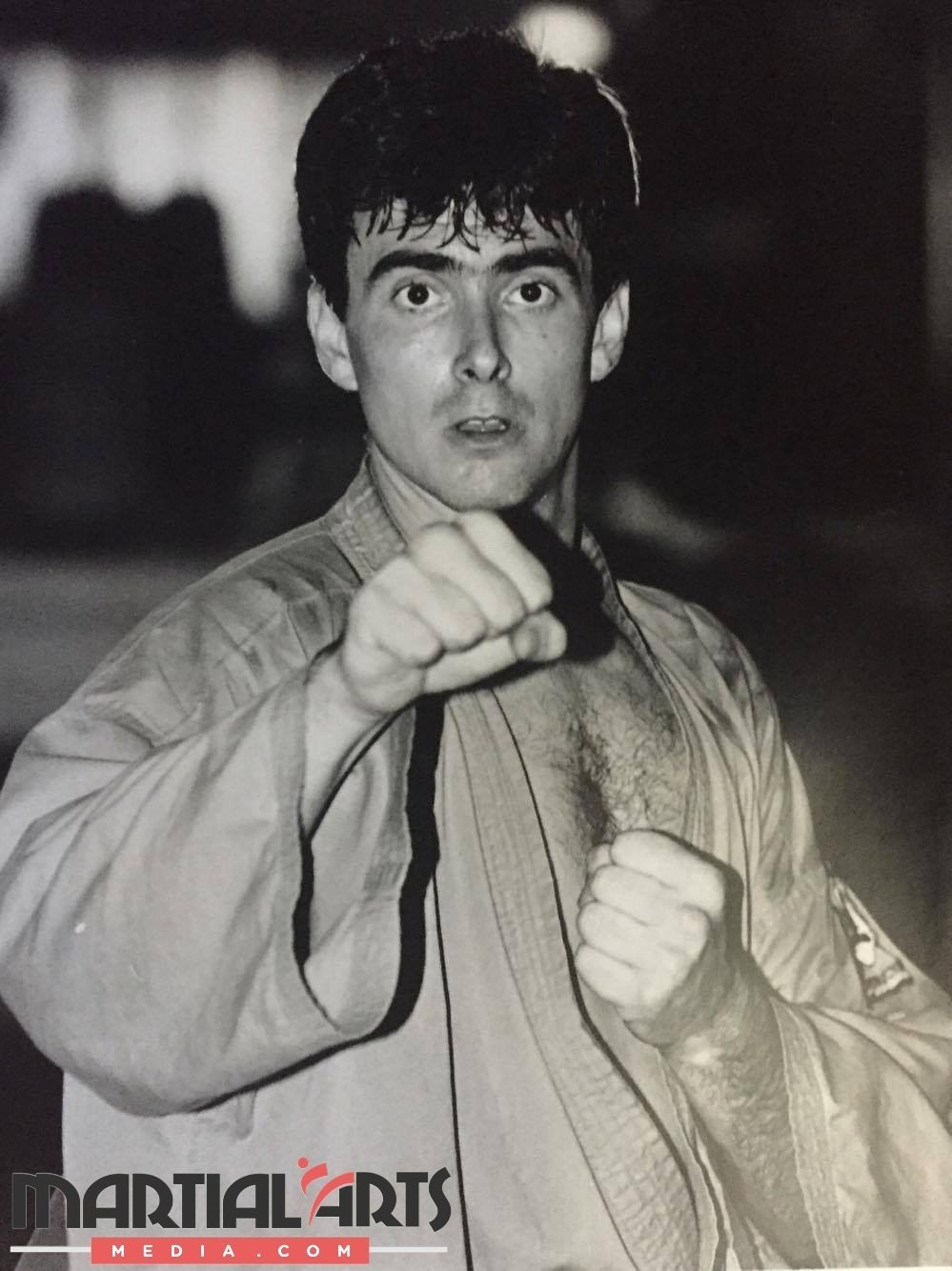
GEORGE: Yeah.
ROSS: So my guys fight on Nitro, they fight on Aftershock, they'll fight on Fightworld Cup, they'll fight on Eternal – they'll fight in good, reputable brands just to make sure that that's the way it is – well controlled. And don't get me wrong, over the years I've learned this, so I've turned up there for a fight and gone, where's the doctor? Well, we don't have a doctor. Oh, OK, so… I guess I'm a one-minute man, am I? And I say, over the years you learn that there are certain things that have to fall into place to make a good event.
And those are the things: I want to make sure that my fighters are looked after by having medical, making sure that they're looked after by having financial backing, making sure that there's insurance in place, making sure that the event is not going to fall over, making sure that there's no criminal element involved, you know? It’s all those little things that have to be in line before I’ll put a guy on a show.
GEORGE: Now how would you – because you've had all this experience and you know the event scene. But how would you as a school owner, if you're entering into this arena, how would you go by assessing the risk elements of entering?
ROSS: I’d be talking to other coaches and other reputable gyms around the area. Like you talked about Stuart Grant: Stuart is a great guy and he knows what he's doing. Stuart and I talk, we can discuss what's going on in the industry, we can discuss what shows are happening, he gets it. If people want to talk to people, that's how you build awareness in the game. I've seen it where you've got a guy who walks up to an event, his coach doesn't actually know what he's doing, the fighter’s got no idea what he's doing, and you go, OK, so have you talked to anybody in the industry? Nah Nah, I've just come from Shukokai Karate, or I've come from a traditional school and I've thought of going into an MMA event, a fight.
Do you know how to wrap hands? No, I don’t know how to wrap hands. Do you know how to do this; do you know what you're supposed to be doing? So the best I can do is get on the phone and talk to them, talk to other people. Either that: when I first got involved in MMA, I started ringing other coaches, talking to them, discussing what was going on and now those guys ring me back and we’re still having conversations about where the sport is going, what's going on with people, is this gym any good, do they have the right mentality behind it – all those things.
GEORGE: Cool Ross. It’s been awesome chatting to you. If people want to – because you've got Lockdown and you've got access to a lot of type of events. If school owners want to get you involved, and I don't know at which level you're available to be involved with events, but what's the process they would take?
ROSS: Basically, they can just shoot me an email on my website, so aftershockmma.com, lockdownsubmissiongrapplingseries.com, fightcross.com – they can shoot me an email, I’ll pick it up somewhere. If I don't, someone will get them to me. And the other thing that I'm involved with that'll help all these guys is the fact that Mixed Martial Arts Australasia is a governing sanctioning body, set up by Chris Haseman and Peter Hickmott and myself – if they don't know who Chris Haseman is, just Google him.
Peter Hickmott referees in the UFC, and he's involved in training with the DSR, trains sports combat in Tasmania as well, so he's well known within the governing bodies throughout Australia. We run courses, we run courses on Cornerman courses, Cutman courses, we run officials courses, we run how to wrap hands courses, so we cover the lot and we’re here to help train these guys that want to get involved as well.
GEORGE: Good stuff. Ross – great chatting to you and I hope to be seeing you at a Lockdown event pretty soon.
ROSS: Of course, cheers George, thanks!
GEORGE: All right, cheers, thanks.
There you have it – thank you, Ross Cameron. Don't those Lockdown events sound awesome? I know they do for me – look, obviously, it depends on what martial arts you specialize in. I think it’s exciting, it’s got lots of potentials and I really hope that it all goes well for Ross and they'll be able to grow this into something substantial, which it definitely looks like they are.
So that's it from me, again, if you want to join us in the Facebook group, martialartsmedia.group, so come and connect with us there, come and say hi. We look forward to seeing you there, having a chat and see how we can possibly help your business. Awesome – have a great week, I’ll be back here next week with an awesome episode and chat with you then. Cheers!
*Need help growing your martial arts school? Learn More Here.
Enjoyed the show? Get more martial arts business tips when you subscribe on iTunes for iPhone or Stitcher Radio for Android devices.


